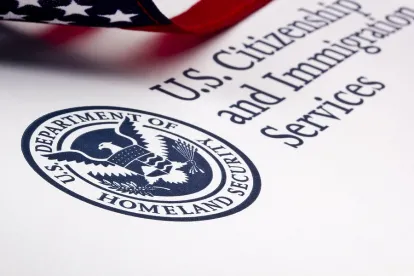On May 23, 2017, the U.S. Citizenship and Immigration Services (USCIS) adopted as official policy the Administrative Appeals Office’s (AAO’s) decision in Matter of A-T-Inc. Specifically, USCIS announced that to be eligible for the H-1B U.S. master’s cap, an individual must have earned a U.S. master’s degree from a school that qualified as a “U.S. institution of higher education” at the time the degree was received. In addition, USCIS confirmed it no longer recognizes the Accrediting Council for Independent Colleges and Schools as an “education accrediting agency.”
Each year the government issues 65,000 new H-1B visas to individuals who have a U.S. bachelor’s or equivalent degree. Under §214(g)(5)(c) of the Immigration and Nationality Act (INA), an exemption to this quota allows for the issuance of 20,000 additional H-1B visas to individuals who have received master’s degrees from a “United States institute of higher education.” The INA draws its definition of an “institute of higher education” from 20 U.S.C. 10001(a), which defines an “institute of higher education” as, among other things:
A public or nonprofit educational institution that is accredited by a nationally recognized accrediting agency or association, or if not so accredited, is an institution that has been granted preaccreditation status by such an agency or association that has been recognized by the [U.S. Secretary of Education].
Matter of A-T-Inc. further clarifies this definition, stating that in order to create eligibility for the H-1B master’s cap exemption the school from which the H-1B beneficiary received the master’s degree must have been accredited or preaccredited at the time the individual received the master’s degree. In Matter of A-T-Inc., the foreign national received his U.S. master’s degree before the school was accredited as an “institution of higher education.” The AAO ruled that this individual was not eligible to be counted under the H-1B U.S. master’s quota because the school was not accredited at the time he received his degree. The AAO also ruled that the petition could not be counted under the regular Bachelor’s degree quota because “the relevant H-1B regulations generally do not permit H-1B petitioners to claim eligibility under alternative grounds.” As such, the AAO determined it was proper for USCIS to deny the H-1B petition.
This clarification of eligibility requirements for the H-1B U.S. master’s cap exemption will give employers the opportunity to better strategize when it comes to filing during future H-1B cap seasons. It is important to consult with counsel when H-1B cap season begins to ensure your H-1Bs are filed under the proper category. In addition, working with your attorney to audit your current H-1B employees who initially received their visas under the U.S. master’s exemption can help ensure that this new policy does not invalidate their H-1B visas or cause issues with their H-1B extensions.


 />i
/>i

